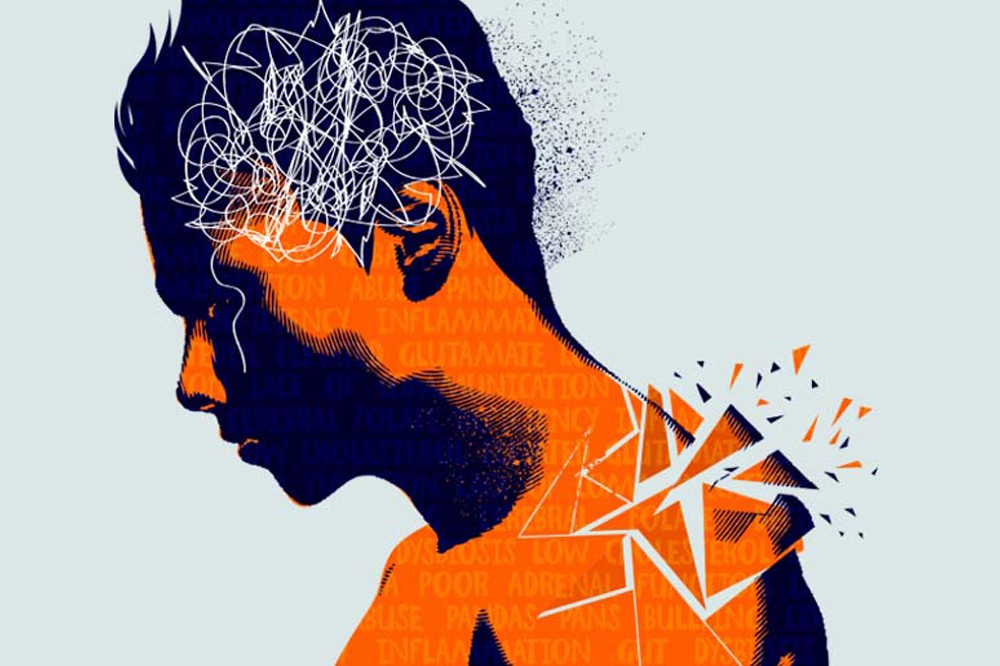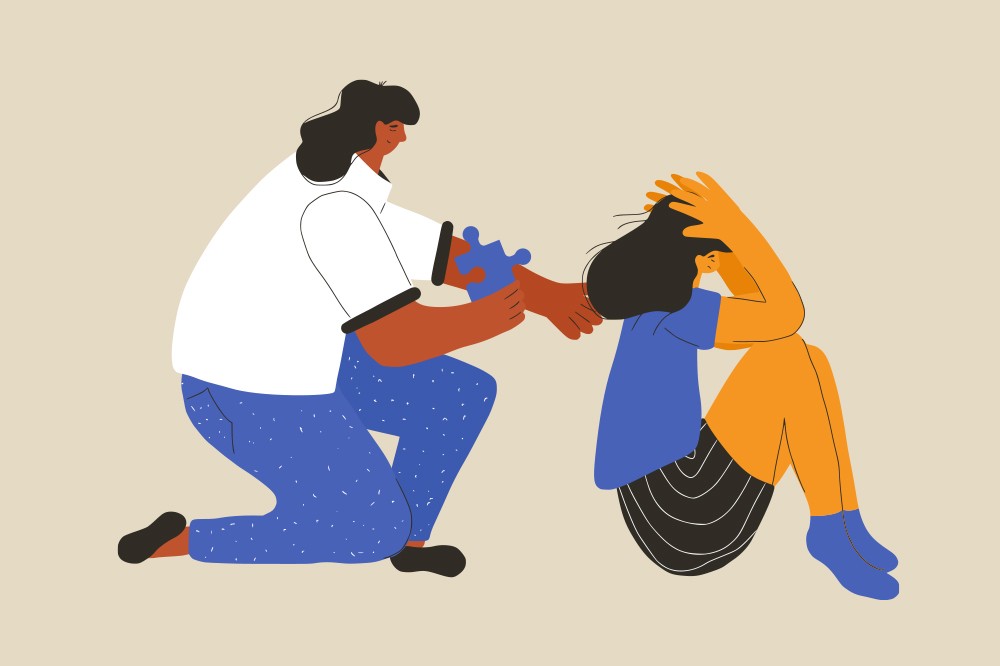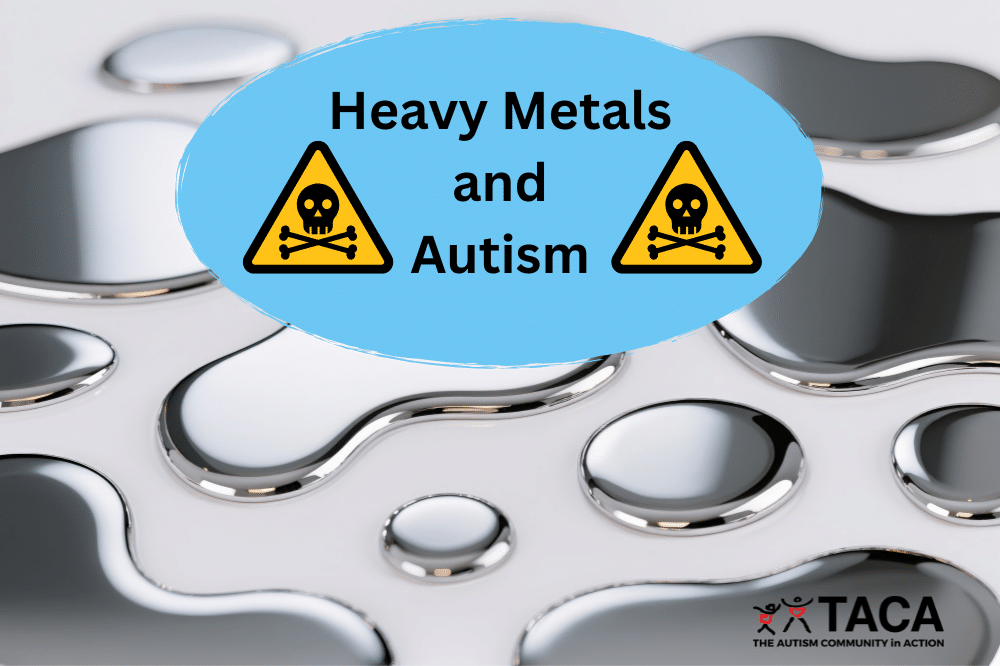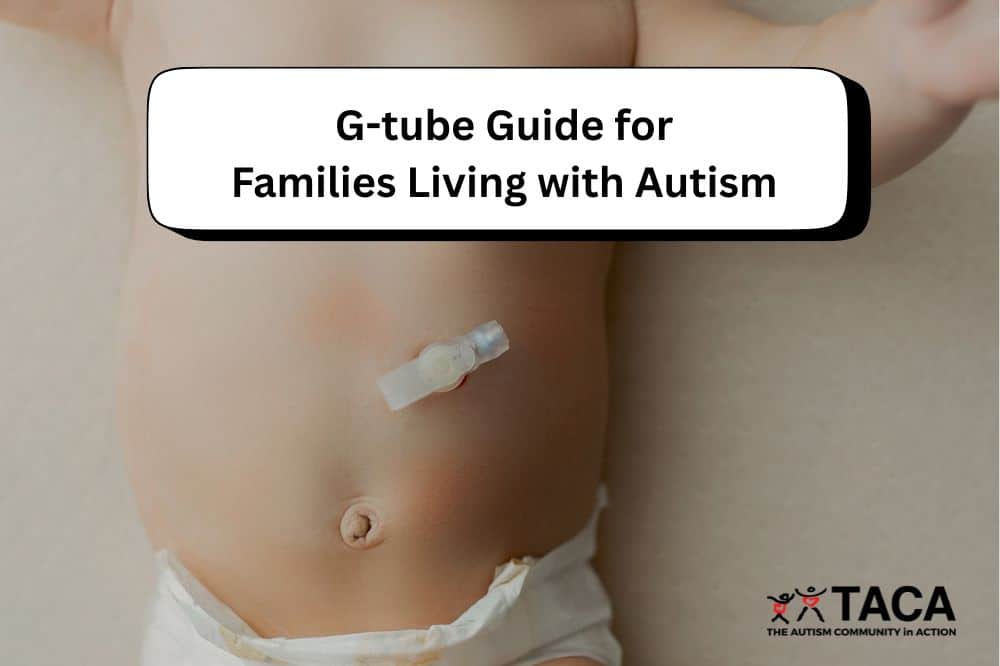Anxiety in Autism

All contents of this resource were created for informational purposes only and are not intended to be a substitute for professional advice, diagnosis, or treatment. Always seek the advice of your physician, therapist, or other qualified health providers with any questions or concerns you may have.
Anxiety is very common in autism. A meta-analysis showed that almost 40% of kids with autism have at least one comorbid anxiety disorder. This article will discuss symptoms, calming strategies, medical and non-medical reasons for anxiety, and supplements and medications that can help alleviate it. We hope you find it helpful.
This article includes:
- Symptoms of anxiety
- Reasons for anxiety
- Non-medical reasons
- Medical Reasons
- Options for managing anxiety
Symptoms of Anxiety
Anxiety can have both physical and emotional symptoms.
Physical Symptoms:
- Heart Palpitations
- Sweating
- Dizziness
- Difficulty Breathing
- Gastrointestinal Upset
- Dry Mouth
- Inability To Swallow
- Headache
- Shaking
- Trembling
- Nail-Biting
- Frequent Urination
- Stimming
- Self-Injurious Behaviors
- High Resting Heart Rate (90+ beats per minute)
Emotional Symptoms:
- Feelings Of Worry And Unease
- Fatigue
- Difficulty Concentrating
- Irritability
- Jumpiness
- Insomnia
- Rigidity
- Aggression
- Avoidance Of Social Situations
- Withdrawal From Social Situations
- Fear Of Separation/Clingy
Why Do Kids with Autism have Anxiety?

Anxiety can be caused by many things. Below are some common medical and non-medical reasons for anxiety in autism.
Non-Medical Causes of Anxiety
Lack of Communication
Frustration and anxiety can result from not having a reliable method of communication. Providing a method of communication to a child or person with autism can relieve acquired anxiety.
Here is an article about helping non-speaking kids communicate.
Bullying
Prolonged exposure to bullying can cause victims to develop anxiety disorders. Watch for signs such as being afraid to go to school, riding the school bus, or taking part in organized activities with peers.
TACA has more information on bullying here.
Abuse
Abuse will cause anxiety in a child. Individuals with autism are more vulnerable to abuse due to challenges in communication, poor social awareness, and being viewed by others has having cognitive impairments.
Here is an article that discusses Risk Reduction Strategies for Physical and Sexual Abuse.
Feeling overwhelmed
Our kids diagnosed with autism may be easily overwhelmed due to loud noises, crowds of people, expectations they feel they cannot meet, and more. This may lead to outbursts because the child feels they cannot control the situation.
Medical Causes of Anxiety
Many children with autism have co-occurring medical issues that can contribute to and/or even cause anxiety. It is important for parents to find a doctor who is familiar with medical issues common to autism because treating them improves quality of life.
Systemic Chronic Inflammation
Oxidative Stress causes neuroinflammation which, in turn, leads to anxiety. Eliminating inflammatory foods (such as sugar, artificial flavors and colors, dairy, gluten, and soy) from your diet is the top way to reduce inflammation.
Some doctors prescribe supplements to help manage inflammation. Supplements that can reduce inflammation include:
- Omega 3 Fish Oil
- This is a study done on medical students which showed that Omega 3 fatty acids reduced inflammation and thus lowered anxiety
- Holy basil
- Curcumin
- Phosphatidylcholine
- CBD Hemp Oil
- Frankincense Essential Oil
- Vitamin E
- Boswellia
- NeuroProtek
- Chinese Skullcap
- Resveratrol
PANS/PANDAS
PANDAS is Pediatric Autoimmune Neuropsychiatric Disorders associated with Streptococcal Infections.
PANS is Pediatric Acute-onset Neuropsychiatric Syndrome.
Both are largely autoimmune disorders, resulting from infections or environmental triggers that cause abnormal activation of the immune system. These infections cause the body to create antibodies that attack the basal ganglia region of the brain, causing a whole host of behaviors. However, there are other known causes of PANS as well such as concussions and metabolic issues.
A PANS or PANDAS flare causes great anxiety likely due to the inflammation it causes. If you are seeing a sudden onset of anxiety, the above-listed supplements might help in addition to finding and treating the infection or trigger.
More information can be found in TACA’s article on PANS/ PANDAS here.
Low Total Cholesterol
Many doctors look for high cholesterol but very few look for low cholesterol, yet low cholesterol can have dire repercussions. Total Cholesterol lower than 145 can lead to depression and anxiety.
Cerebral Folate Deficiency
Untreated Cerebral Folate Deficiency can cause anxiety. This is a condition in which there is normal folate in the blood, but low folate in the brain.
See TACA’s detailed article on CFD here.
Elevated Glutamate and Low Gaba
Anxiety is a top symptom of glutamate toxicity. Glutamate is a non-essential amino acid. It is excitatory neurotransmitter, which is stimulating. Kids with autism tend to have too much glutamate and not enough GABA.
See TACA’s article on glutamate here.
Elevated Histamine
Mast cell activation is directly linked to anxiety. When mast cells are activated, they release histamine along with many other inflammatory chemicals. A low histamine diet and removing allergens from your environment can lower your histamine levels, and thus inflammation and anxiety.
Learn more about this topic by reading TACA’s article on mast cells.
Overgrowth of Pathogenic Gut Bacteria
Studies show that a person’s gut bacteria affect mood and anxiety levels.
- Here is an article referencing a study on Prebiotics for anxiety
- Here is an article referencing a study on how specific gut flora (and sometimes no gut flora) of mice caused high anxiety
Learn more by reading TACA’s article on the Gut-Brain Connection.
Poor Adrenal Function
When most people think of adrenal illness, they think of Addison’s or Cushing’s disease. However, adrenal dysfunction can cause symptoms long before you see labs reflecting these diseases.
The adrenal glands help the body handle stress, whether acute or chronic, emotional or physical. They secrete the hormones that regulate the body’s “fight or flight” response, adrenaline and noradrenaline (also known as epinephrine and norepinephrine). They also help to regulate blood sugar levels, the nervous system, heart rate and even affect mood and ability to handle situations. The adrenal glands use a lot of vitamin C and it becomes depleted as cortisol is secreted. Therefore, vitamin C may help in adrenal gland recovery.
Options for Managing Anxiety

In addition to treating the root cause, there are a number of options to help manage anxiety, such as: therapy, mindfulness, visual schedules, choice boards, deep pressure activities, supplements/prescription medications, diet, and exercise.
Visual Schedules and Choice Boards
Many of our kids are visual and knowing what to expect can quell anxiety. Use a physical schedule or list that the child can monitor throughout the day. Watches and clocks might help your child to know the time that the task at hand will end. Allowing your child to have some control over their choices can reduce anxiety. Here is an example of a choice board.
See this TACA article on Strategies for a Calmer Home.
Deep Pressure
Applying deep pressure causes the body to relax because it activates the parasympathetic nervous system. There are lots of ways to help your child get some deep-pressure input, many of which are free and easy to do:
- Movement – jumping, crawling, push-ups, pushing, pulling, carrying items, swinging, running, jumping, etc.
- Weighted blankets, vests, backpacks, etc.
- Wilbarger Brushing protocol is a program of brushing and joint compressions usually prescribed by an occupational therapist.
- Qigong Massage can alleviate sensory problems and create a great bonding experience between parent and child.
Mindfulness
Being present and fully engaged with whatever we are doing takes practice. Ways to help us practice mindfulness include the following:
- Deep Breathing Techniques – research shows that children with autism have difficulty with deep breathing and have a lower heart rate than expected during physical exercise, possibly caused by a deficit in the limbic system.
- Yoga – this study shows after that 12 sessions, there was increased calmness, tolerance of sitting, socialization, better body posture and eye contact, and increased alertness.
Therapies
Therapeutic options for managing anxiety include:
- Mendability – an in-home sensory exercise program
- Cognitive Behavioral Therapy (CBT) – talk therapy that focuses on changing patterns of thinking
- Transcranial magnetic stimulation (TMS) – a noninvasive procedure that uses magnetic fields to stimulate nerve cells in the brain to improve symptoms of depression or anxiety
- Neurofeedback – a passive brain training therapy that teaches the brain how to better manage anxiety.
Supplements and Prescription Medications
Below are some of the most common supplements and prescription medications that functional medicine doctors use to help manage anxiety.
Supplements:
- Inositol
- N-acetylcysteine (NAC)
- GABA
- Note: GABA is too large of a molecule to cross the blood-brain barrier (BBB) unless the BBB has become leaky, however, it can still work peripherally.
- L-Theanine
- Valerian Root
- Lithium Orotate
- CBD Hemp oil
- 5HTP
- Note: Never use 5HTP in conjunction with SSRIs because 5HTP helps make serotonin.
- Vitamin C (with bioflavonoids)
- This works to support the adrenal glands
- Ashwagandha
- Supports adrenal function
Prescription Medications:
- Propranolol
- This an older, safer inexpensive medication used by many MAPS doctors to reduce anxiety
- Propranolol is a beta blocker that blocks the adrenaline receptors
- It has also been shown to improve cognition in autism
- Memantine (Namenda)
- In this study, Memantine treatment was associated with significant improvement in ADHD and anxiety symptoms
- Oxytocin
- Oxytocin has been shown to be helpful for socialization and anxiety
- Hydroxyzine
- Hydroxyzine is a mild anxiolytic agent and antihistamine
- This double blind placebo study showed that Hydroxyzine was both safe and effective for generalized anxiety disorder
Diet
Diet is the foundation for all good health. Some foods create inflammation (and thereby anxiety) such as sugar, dairy, gluten, and soy. Opting for a diet rich in whole foods can make a difference in mood.
See TACA’s article on the importance of diet in autism.
Exercise
Exercise releases endorphins in the brain. Endorphins are chemicals produced by the body to deal with stress and make you feel relaxed and happy. Instituting a regular exercise regime can lead to a healthy outcome.
Think out of the box for exercise ideas if needed. Horseback riding helps core strength, swimming gives great sensory input, running can be a great individual sport, bowling gives great proprioceptive input with heavy lifting, and even martial arts can be done with a patient coach.
Conclusion
Although anxiety is commonly seen in autism, there are many ways we can help manage the symptoms of something that can be debilitating. Discovering what is triggering the anxiety, and treating the root cause are also extremely helpful. Seeking out a functional medicine doctor and specialists can help your child be healthier and happier.




